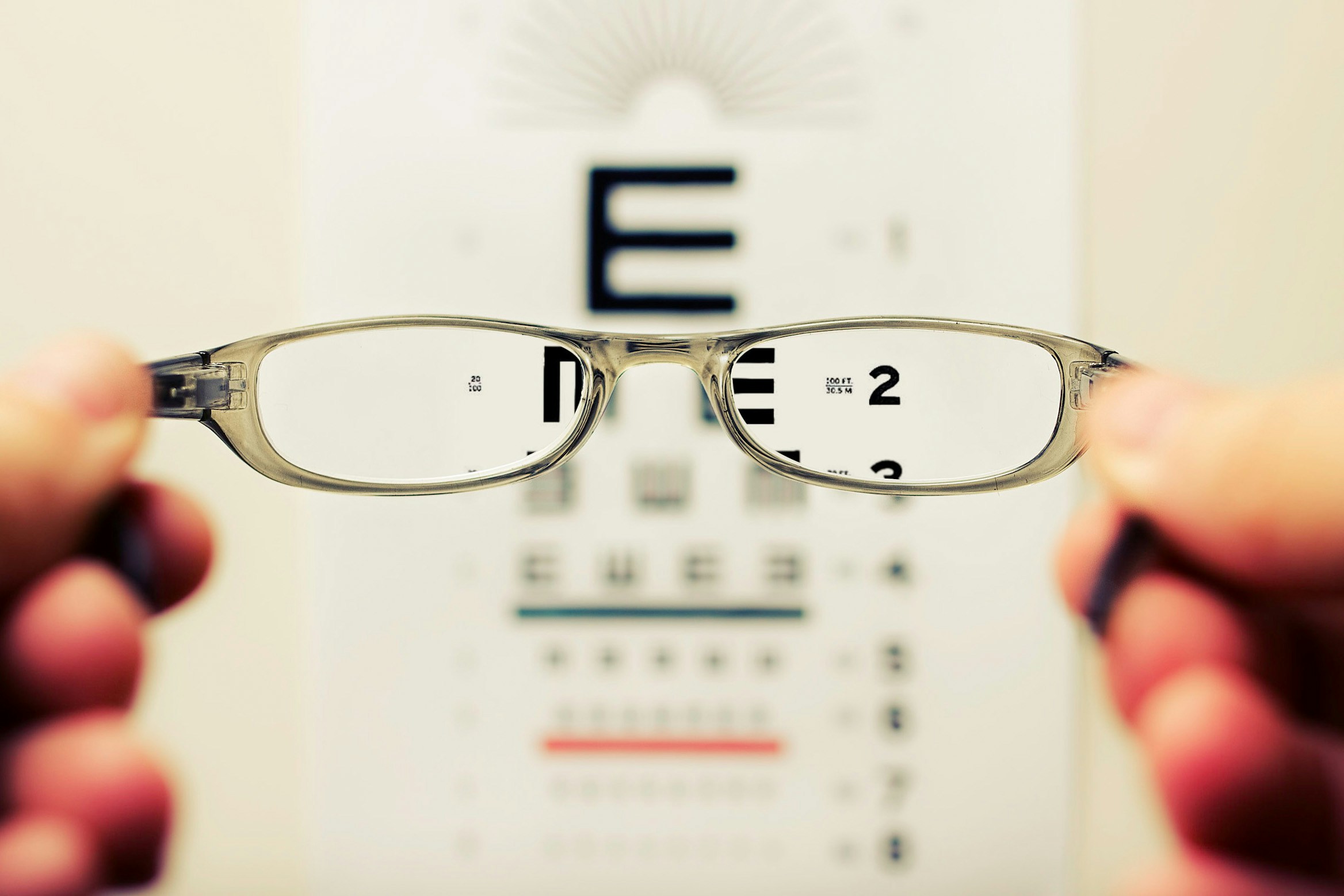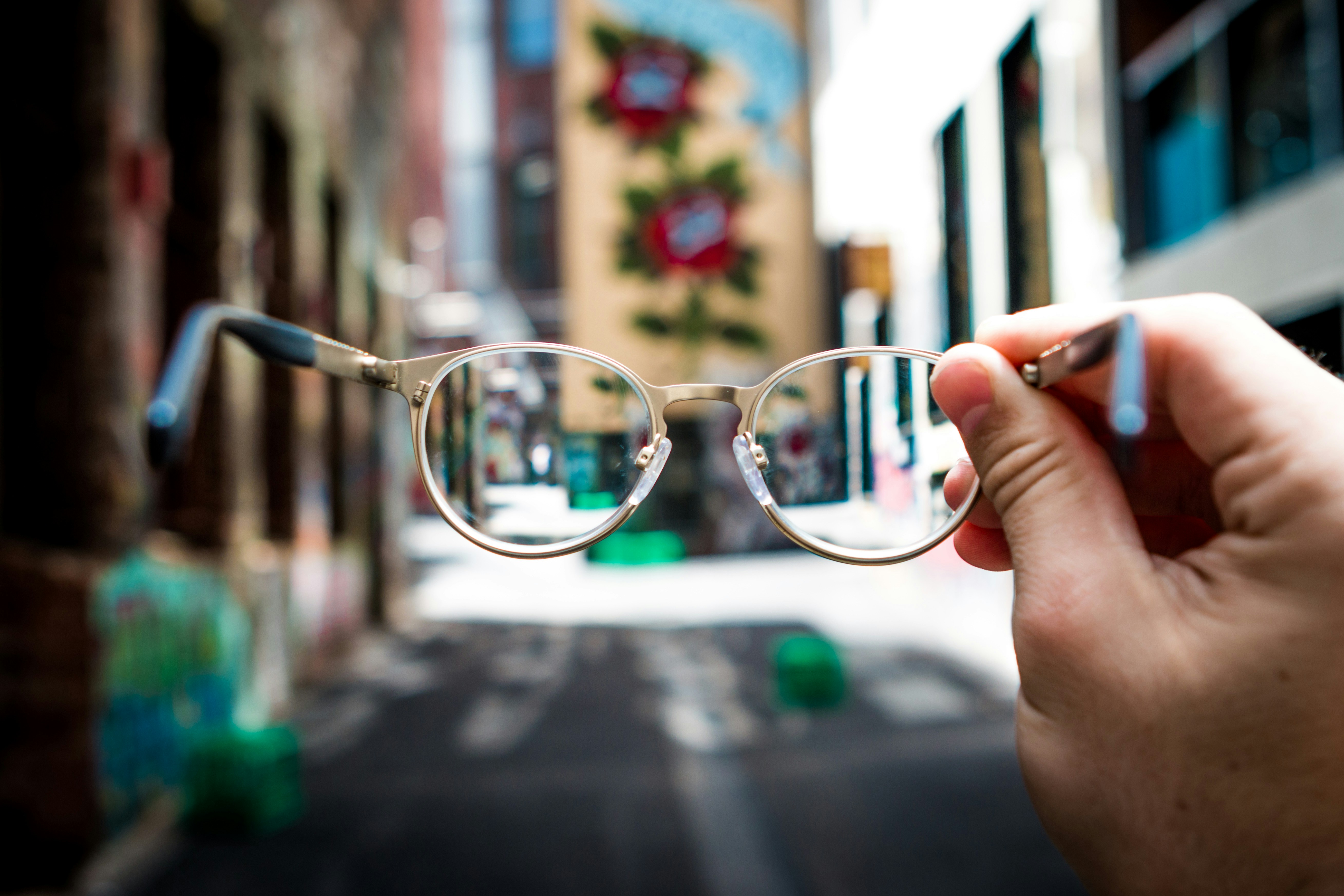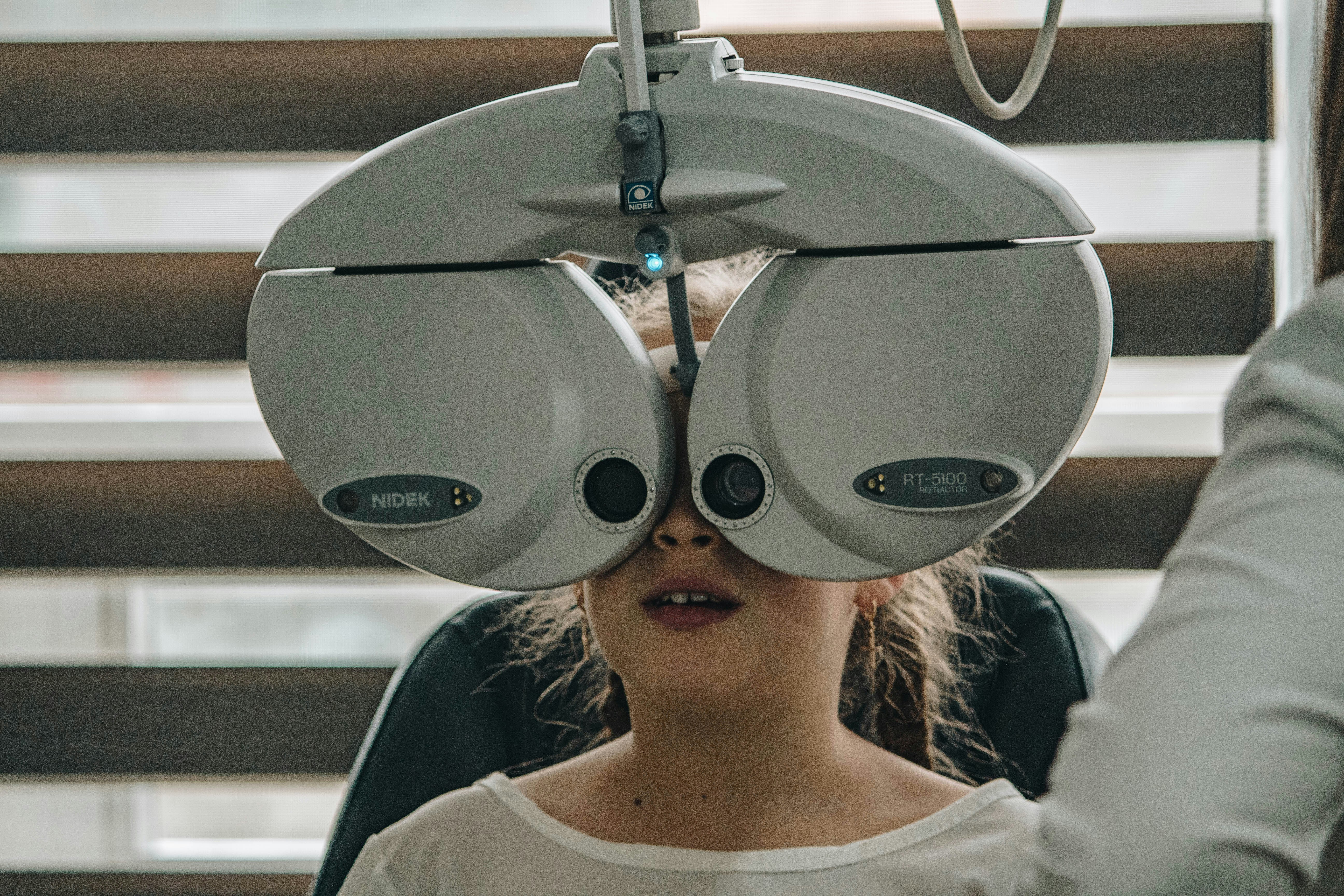How often you should get your eyes examined depends on your age, your eyes, and your family history. Healthy adults under the age of 40 should get their eyes checked every two years, while healthy adults over the age of 40 should get their eyes checked every year. You should get your eyes checked annually if you have had eye problems in the past or have a higher risk factor for developing eye problems.
There are certain risk factors that can affect your eyesight such as diabetes and high blood pressure, a job that strains your eyes, or the use of recreational drugs. Eye exams check for signs of problems that can affect your vision such as glaucoma, macular degeneration, cataracts, and diabetic retinopathy.
Preparing for an eye exam shouldn’t stress you out. There are only three things you should do before your exam:
1. Bring your prescription eyewear.

You will need to bring your prescription glasses or contact lenses with you to your appointment. Your eye doctor will check your existing prescription to see if it’s still right for your eyes. Be sure to bring a pair of sunglasses with you, as bright light will be uncomfortable for your eyes if they are dilated during the exam.
2. Prepare to discuss your vision history.

Whether it’s your first eye exam or you’re seeing a new eye doctor, prepare to discuss your vision history. Your eye doctor will ask you questions to understand your risk of developing eye disease and vision problems. Questions may include your medical history including eye problems and your family’s medical history including eye problems.
3. Know what to expect during the exam.

There are three different types of eye specialists you may see depending on your personal preference or the nature of your eye problem. Ophthalmologists are medical doctors who provide full eye care. They perform eye exams, prescribe corrective lenses, diagnose and treat eye diseases and even perform eye surgery. Optometrists provide many of the same eye care services as ophthalmologists, but they don’t perform eye surgery. Opticians don’t provide any eye health evaluations, but they do fill prescriptions for corrective lenses. They create, fill and sell prescription eyeglasses.
There are several tests that you will undergo during your eye exam, each of which checks the function of your eye:
- The eye muscle test evaluates the muscles responsible for eye movement and looks for muscle weakness.
- The visual acuity test measures how clearly you see when reading alphabetic letters on a chart located a distance away from you.
- The visual field test examines the extent of your visual field to determine if you have difficulty seeing in any area.
- The retinal examination allows your eye doctor to evaluate the back of your eye with the use of dilating drops.
- Tonometry screens your eyes for glaucoma by measuring the fluid pressure inside your eye.
What should you do after your eye exam?

Sometimes your eye doctor may notice something during your exam that’s not a problem now but that should be monitored. There are instances where you may be prescribed prescription medication to treat an eye problem or prevent one from developing.
Even with prescription drug coverage from your health insurance plan, prescription prices can be expensive. Brand name drug prices are easily twice the cost of generic drugs. A prescription discount card can help you find the best price on brand name and generic prescriptions at a specific pharmacy.
The USArx discount program is one of the top rated prescription discount cards that bring prescription savings and discount prices to all cardholders. Simply sign up with your email address, download the mobile app and search for a participating pharmacy in your zip code. Thousands of pharmacies throughout the United States make up USArx’s pharmacy network, including Walmart and Walgreens. Compare leading discount pharmacies in your zip code and pay the lowest price possible for your prescription medication.
What about health insurance coverage?

Having health insurance encourages you to take charge of your health care and provides financial cover for medical treatment, the cost of medication, and other out of pocket costs such as prescription lenses. Private insurance provides coverage for the things that public health insurance like Medicare and Medicaid don’t cover. That being said, health insurance plans are not one-size-fits-all. Things like exclusions, rates of copay, deductions and prescription medication all affect the cost of health insurance coverage. Not all health insurance covers eye care, so you’ll want to research the coverage you’re getting if you are at risk for eye problems.
iSelect can help you find and compare health plans from a range of health care providers so you can find a policy that fits your needs. Whether access to eye care specialists, human services, a special enrollment period or eligibility requirements matter most to you in a health insurance policy, you can find your ideal health plan with iSelect.
Your vision is precious and something that you need to care for. Keep up with your eye health and schedule an eye exam to make sure your eyes are healthy and performing properly.
